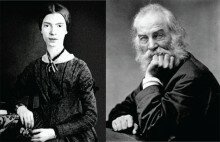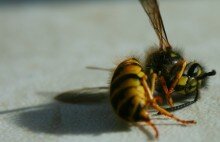Admire one another!

In 2009, Tom Van de Voorde wrote an article on Belgian poetry for Poetry International under the title ‘Does Belgian Poetry Exist?’ Here poet Benno Barnard (born in the Netherlands, but now living in Flanders) gives his views on Belgian poetry. This article is the result of a lecture he gave at the Felix Poetry Festival in Antwerp, and was first published in De Standaard on 15 June 2012. Readers will have to decide for themselves who is right.
Is there actually such a thing as Belgian poetry?
The question is a subtle variation on the question of whether Belgium itself exists, the Belgian nation, the Belgian people . . . and these days every daily newspaper hits you in the face like a fist with the negative response. Indeed, as an outsider one gets the strong impression that the Belgians do not want to be there at all. ‘We don’t exist!’ they will explain to you. ‘We’re ghosts . . . drifting aimlessly through the house of European history. We are a coincidental, random eddy of atoms, devised by Lord Palmerston, and not inspired by a national deity’.
It used to be different.
In 1914 Belgium had the fifth largest economy in the world in absolute figures. The country enjoyed a tremendous standing in comparison with the size of its population. And its poetry – at least that written in French – basked in as much glory. Maurice Maeterlinck . . . I need hardly remind you of his 1911 Nobel Prize. And Emile Verhaeren, who – in my view – deserved the award more, was recognised in the street as far away as Moscow.
It is true – Belgian poetry was French-language poetry, even though the major producers were Flemish, as the other poets whose names you may recall, Georges Rodenbach, Charles Van Lerberghe and Max Elskamp, were not Walloons, either. The evocations of gothic béguinages and belfries, nuns, ploughboys, waggoners, cottages, crucifixes and the port of Antwerp, of picturesque, industrious tenant farmers harvesting fields of waving corn – those images were Flemish, even if they were served up in a sauce of decadent, fashionable Parisian lassitude, as in the case of Maeterlinck. Or in another sauce, that of armchair socialism, as in the case of Verhaeren and his villes tentaculaires, which were beginning to intrude on the idyllic landscape.
Flanders voyaged, as it were, through Europe thanks to the vehicle of the French language, and for the cultured visitor it was perhaps disappointing that the common or garden Flemish clodhopper preferred to express himself in a rough-sounding, incomprehensible West-Netherfrankish dialect. Because this was Flemish reality a century ago: every baron or aspiring bourgeois would speak French, whereas the working man or peasant would speak flamand, his local brand of Dutch, almost incomprehensible twenty miles further on. In other words, Flemish emancipation, or in political terms ‘the Flemish Movement’, was definitely a necessity.
But the old Europe was hastening towards its demise. The Great War and a mixture of emancipation and nationalism were to prompt numerous peoples to establish their own small states. Belgium, too, transformed into another country. And after World War II and the delimitation of the language border, it fell prey to folly. In the past, the social struggle had been fought by Flemish and Walloon workers as one man, but the unfruitful combination of nationalistic hard-headedness in the north and blunt ignorance in the south gave birth to ethnic conflict without any historical foundation. Yes, the ancien régime had to go – but what a disappointing end to a century of emancipation!
So the conclusion is that, in any event, there used to be such as thing as Belgian poetry.
Naturally there are always Flemings who will vehemently deny this, simply because the reflux of their frustration on hearing words such as ‘Belgium’ and 'Belgian’ automatically makes them retch. But any old-fashioned, polyglottal, well-read Flemish Movement culture vulture (a human species that, you may be surprised to hear, inspires me with a mixture of endearment and awe) will readily acknowledge that there is such a thing as historic Belgian poetry . . . and he will go on to explain that it is as bygone as Belgium itself.
Poetry has its own anarchy, however. French-speaking Flemish poets are like Flemish Movement culture vultures – there are still living specimens to be found of both vanishing species. Werner Lambersy was born in Antwerp. Daniel De Bruycker comes from Brussels and both his parents are Flemish. In 2007 Jan Baetens won the Prix Triennal de Poésie de la Communauté Française. Jan Baetens is not even originally French speaking: He writes his poems in French to build in a certain critical distance, as he himself explains.
So there are still Flemish poets with a French pen, but their homeland has become obscure and even their poetry will seldom be recognised as ‘Belgian’ in either Belgium or in France, let alone the Netherlands or Moscow. Nevertheless, their poetry has characteristic Belgian traits that may be less evident than they were a hundred years ago, but even a vague, hazy, ambiguous homeland influences the way the piper plays his tune.
Belgium lives on in yet another literary way. These days, there are poets in this country who thematise Belgium, writing sometimes-ironic verses about Belgium, accepting or rejecting it as their homeland. Jean-Pierre Verheggen, for example, begins one poem like this:
A Bruxelles, une vraie moule est toujours bien en chair: grosse, grasse, bien
blanche et flamande.
[In Brussels, a real mussel is always fleshy: big and fat, nice
and white and Flemish]
If you hear him reading that aloud with a big, fat Brussels accent there can be no doubt . . . this is Belgian!
Or what about Leonard Nolens, who in one of his best-known poems says that he may have been born in Belgium, but Belgium was never born in him? And the list goes on, Flemings and Walloons alike. One striking recent case is the collection published by the organiser of this festival, Michaël Vandebril: Het vertrek van Maeterlinck [Maeterlinck’s Exile]. The same collection is also entitled L'exil de Maeterlinck, because it contains an integral translation of the original poems as well. Such a demonstration of the ‘Belgian attitude’, commonly known as ‘Belgitude’, is quite unusual amongst young postmodern Flemings. In French rather than English? In this rather depressing day and age? It’s like making cauliflower in white sauce, that most old-fashioned of Belgian dishes, or becoming a Catholic or not wanting to get divorced. You can summarise this collection by Vandebril, that shining example of contrariness, in one word. That word comes from the glossary of Untranslatable Belgian Terms and is: foert!, which basically means ‘Bog off’, and is addressed to all Flemish separatists set upon euthanising this wonderfully absurd country.
But that is not all.
I think there is also such a thing as inadvertent Belgian poetry. Or even unwitting Belgian poetry. The Belgian element is, as it were, undercover, below the surface – which lends such poetry a certain subversive character. It runs more or less by accident against the grain of today’s dominant forces.
But what exactly is it that makes those Belgian poems Belgian? How is it that you can immediately recognise such a Belgian poem as Belgian?
If you knew that, you could develop a branch of Belgian poetics. And with that you could counter the people’s nationalist Flemish poetics preached in the introduction to Hotel New Flanders, the thick anthology of post-war Flemish poetry compiled by Dirk van Bastelaere, Erwin Jans and Patrick Peeters. According to the anthologists, there is a “Flemish poetic system” and for that system, “the Netherlands is just as much a foreign country as France, America and India”.
That is not an innocent statement. As a Dutch poet living in Belgium, I should know. It is profoundly parochial, as parochial as the commercial television channel that subtitles Dutch series because of a slight difference in accent, thus keeping its Flemish viewers as provincial as possible. And it is even less innocent when you consider that Dutch poets living in Flanders are not anthologised. The book expresses the gut feeling of the lower middle classes and serves the separatist agenda. ‘Flanders above all,’ isn’t that how it goes? We’ve got nothing to do with those arrogant Dutch cheese heads or those cocky French speakers either. In Hotel New Flanders, the nationalist Van Bastelaere is like a farmer in a painting by Permeke, the Flemish expressionist contemporary of James Ensor, standing with both feet planted firmly in the mud of his land, leaning on his pitchfork and suspiciously watching legions of alien poets traversing the horizon.
If I want to fight that supposed system, I will therefore have to define the features I consider contemporary Belgian poetry to possess. As we are dealing first and foremost with a Je ne sais quoi, that will not be easy, but let me summarise the kinds of characteristic the reader will tend to come across in Belgian poems.
Expressionism, mysticism, Catholicism, anti-Catholicism, post-Catholicism, regionalism, the pig as man, man as a pig, anarchy, cultivated suspicion, absurd humour, oral obsession, language, linguistic issues, gluttony, comic-book-likeness . . . they are all traits, themes, subjects, undercurrents and preoccupations of which you will find thousands of mixed forms in the poems written in these alluvial lowlands and the hills beyond.
Oh yes, there is definitely such a thing as Belgian poetry, or rather, there is a Belgian poetic system . . . which, in any event, includes this neurosis: the constant comparison with (subjection to, rebellion against) the poetry of a bigger neighbouring country – France if you write in French, the Netherlands if you write in Dutch – that publishes your work and, who knows, one fine day may place a laurel wreath on your head.
I recently read Luuk Gruwez’ collection, Wijvenheide. In it, I encountered just about all the themes summarised above. One good example of a poem with dominant Belgian traits is ‘De snor van Flaubert’ [‘Flaubert's Moustache’]:
So why did Flaubert wear a moustache? Did he even know?
Surely not to gag himself? To hide what he
had to tell? From nostalgia for his coq-au-vin, his tripes
à la mode de Caen, the very first mother’s milk?
Flaubert’s moustache was accustomed
to leading a life of its own. Exuding disdain or
approval, depending on how it curled.
He, as its wearer, was just as averse
to mankind, forever the critic.
Then there was the retching. That sickening cocktail
of congealed bits of food. The strings of failed love affairs
And that ridiculous parrot that time and again
demanded mimicking by the one who had always imitated himself.
Gustave Flaubert lived in Croisset, in Rouen,
in Paris. But mostly he lived in his moustache.
Gustave Flaubert was his moustache.
Few Dutch people will realise how comical this poem is, let alone get the absurd joke in the final line: the moustache of France’s greatest stylist is attributed with the same function as language in a well-known Flemish war cry, ‘De taal is gans het volk’ [The language is the people].
Even Dirk van Bastelaere cannot get away from this neurosis. In ‘De wind uit het elders 2’ [‘The Wind from Elsewhere 2’] (the poem is in his own anthology) he presents a Frenchman (the philosopher Baudrillard), whom he quotes in French, something a contemporary Dutch poet would never consider. But more importantly, Van Bastelaere defiles Belgium with the following words:
The footpaths are narrow in this country, the houses ugly, the food rich but untrustworthy
This ironic depiction of Belgium is very Belgian indeed (all the clichés are there), as is the poet’s grammatical indifference. Unless, of course, you feel that the lavish nature of Belgian food justifies the plural form of the verb: ‘the food are rich’.
In other words, dear reader, Belgian poetry is never innocent. It is, by definition, political – even when it is not intended to be so. Always assuming that it does exist, which I cannot prove, a fact that in itself, incidentally, is extremely Belgian, given the rather surreal nature of this country. At any rate, in my opinion a Belgian poem is an implicit act of resistance. Resistance to what you can decide for yourself.
So let me, finally, cry out to Belgian poets and their readers what Emile Verhaeren cried out to the European peoples: ‘Admirez-vous les uns les autres!’ [Admire one another!].
Read Tom Van de Voorde's 2009 article title ‘Does Belgian Poetry Exist?’ here.







